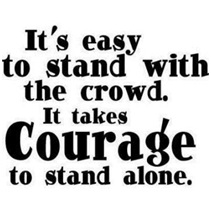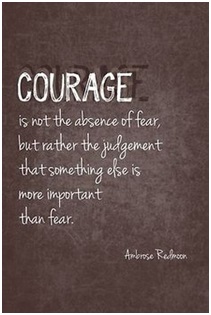
A Coaching Power Tool Created by Rackel Correa
(Executive Coach, BRAZIL)
 Sometimes we find ourselves frustrated and dissatisfied in our careers, and stuck to choose a different way. This situation often happens when we are inserted in the corporate environment, and we believe that we are surrounded by rules dictated by competition and politics. In this context, it is normal to feel pressured to follow the pattern of doing anything to make people happy – our boss, our peers, our employees, to avoid trouble. In other words, we sometimes are limited by the obligation to prevent people in our work environment from any discomfort. At the cost of restraining our creativity, contribution and satisfaction.
Sometimes we find ourselves frustrated and dissatisfied in our careers, and stuck to choose a different way. This situation often happens when we are inserted in the corporate environment, and we believe that we are surrounded by rules dictated by competition and politics. In this context, it is normal to feel pressured to follow the pattern of doing anything to make people happy – our boss, our peers, our employees, to avoid trouble. In other words, we sometimes are limited by the obligation to prevent people in our work environment from any discomfort. At the cost of restraining our creativity, contribution and satisfaction.
Although not uncommon, this pattern usually is the path for failure in business. If you never question your boss, you are likely to support him/her in mistaken decisions sometimes – because bosses also make mistakes. If you never do anything that your peers do not like, you are likely to be aligned with their level of performance and way of doing things, putting limits to your creativity and preventing you from moving to a next level. If you never do anything that causes discomfort to your employees, you will never take them out from the comfort zone, will not help them face their weaknesses and raise the bar to a higher level of performance and excellence. These consequences, when combined, bring the organization to a level of stagnation that cannot have success in long-term.
If this pattern brings such negative consequences, why is this behavior so common at all professional levels, including senior executives in big corporations?
This happens because of Fear. Fear of being unsuitable to the corporate environment, of being negatively judged by the boss or by the peers, and having consequences of loss – losing a salary raise, a promotion, or even the job. There is also fear of the leader of not being accepted by the employees – maybe because he thinks they need to accept him/her to produce the results that he/she needs, or for the more practical reason of protecting themselves from having low scores in the annual employee engagement survey – which would cause questionings from HR.
Fear has always been a potent human emotion. Whether in a society or a corporation, fear can spread like fire and sabotage the brightest minds and the biggest organizations. This is why, in today’s competitive and uncertain marketplace, for a professional to have courage that emboldens him/her to rise above their fears is vital to being successful.

What is Courage about?
Courage comes from coeur, which means heart, core. Aristotle called courage the first virtue, because it makes all of the other virtues possible.
In addition to being the most important human virtue, it is the most important business virtue, as well! Important business concepts like leadership, innovation and sales fail in the absence of courage.
Effective Leadership takes making often unpopular decisions. Innovation involves creating ground-breaking ideas. Sales requires being repeatedly rejected before closing a deal. All these roles take courage. Take away courage, and leadership, innovation and sales lose their potency.
Courage is not absence of fear. It is action, despite the fear. It is experiencing fear, yet pushing through it to achieve your desired result.
 It’s not easy though. Demonstrating courage – whether it’s having an uncomfortable conversation, communicating to employees when you don’t have all the answers, or making a decision to move ahead on a new project – can be scary. Yet it’s precisely the kind of behavior that fosters trust and sets a crucial example for others to follow at a time when they’d rather stay paralyzed and wait for the storm to pass. And this is the beauty of courage: it is contagious!
It’s not easy though. Demonstrating courage – whether it’s having an uncomfortable conversation, communicating to employees when you don’t have all the answers, or making a decision to move ahead on a new project – can be scary. Yet it’s precisely the kind of behavior that fosters trust and sets a crucial example for others to follow at a time when they’d rather stay paralyzed and wait for the storm to pass. And this is the beauty of courage: it is contagious!